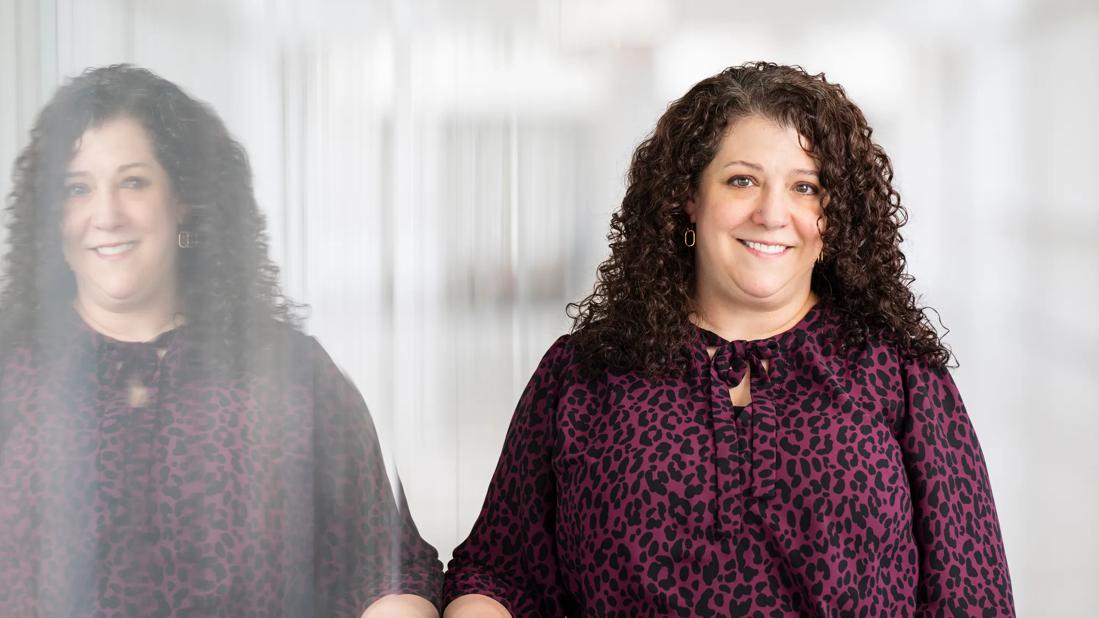Q&A with Georgina Rodgers of Clinical Cancer Services

When Georgina Rodgers, BSN, RN, OCN, NE-BC, was a novice nurse on a bone marrow transplant unit at a hospital in Atlanta, she experienced her first death of a patient. She was in the room with the patient and his family when he took his last breath. It was a heartbreaking moment for Rodgers, who now serves as a leader in Clinical Cancer Services at the Cleveland Clinic Taussig Cancer Institute.
Advertisement
Cleveland Clinic is a non-profit academic medical center. Advertising on our site helps support our mission. We do not endorse non-Cleveland Clinic products or services. Policy
Even after 26 years as an oncology nurse, Rodgers has never forgotten that first death. In June, she shared her thoughts on dealing with death and dying in an essay in the Clinical Journal of Oncology Nursing. In the following Q&A, she talks about the essay, her first experience with death and support for caregivers when a patient dies.
Q: Why did you decide to write the essay?
A: The Oncology Nursing Society put a call out for articles for new graduate nurses. They left it wide open for topics. I went all the way back to probably the single thing that affected me the most as a new nurse. The first experience with a patient death, for me, was so emotional and hard to recover from.
Q: As a nurse, you intellectually know that patients will die. But it’s different when it actually happens. How did it affect you?
A: I was a very young, very naïve person. I hadn’t even really been affected by death in my family, then I witnessed it firsthand with a patient. It was very different than what you see on television. It was not this beautiful, peaceful event. It was expected, but seeing the patient die and witnessing the family members and their grief was very depressing. I wasn’t prepared. I was winging it with my colleagues.
Q: In your essay, you mention relying on more experienced co-workers for support. How did they help you?
A: Without going into too many details, the first death of a patient I experienced was probably beyond anything a new grad would ever experience. There was a lot of emotion and drama surrounding it. The patient was an older man with a young wife who was not prepared mentally for him to pass away. She collapsed in the room afterward. For a 22-year-old kid just out of nursing school, it made for a lot of anxiety. My older, wiser nursing peers said, ‘This is not how it usually goes. Take a minute for yourself. Sit and process. If you need to cry, it’s OK.’ They helped me manage the family and take care of the patient’s body afterward. From an overall colleague support standpoint, they helped me through this difficult process.
Advertisement
Q: While one-on-one help from peers is invaluable, institutional support has become more commonplace. What support does Cleveland Clinic offer for caregivers surrounding the death of patients?
A: We’ve got classes on end-of-life health care. There’s a whole standardized program called ELNEC (End of Life Nursing Education Consortium) that helps prepare people for how to deal with patients and family members, as well as self-care. Our Code Lavender program is a fantastic offering for supportive, holistic services to help clinical team members. Several years ago, we had a death in the ambulatory area. We knew the patient was going to die, however we didn’t expect it to happen at an office visit. The patient passed away, and we called Code Lavender. Pastoral Care came to our site and helped the spouse and our caregivers, and they supported us for several days after.
I also heard about ‘The Pause’ at our Oncology Nursing Conference in March. While we don’t have many deaths in the ambulatory area, I thought it was a beautiful practice for caregivers and family members to take a moment when a patient dies to honor their life. We don’t typically take time to breathe after things like a death happens. We just move on to the next situation. The Pause is a nice way of honoring the patient and also encouraging self-care for the caregivers – allowing them to acknowledge what just happened before moving on.
Q: From your experience, what advice would you offer nurses in dealing with the aftermath of the death of a patient?
Advertisement
A: It is important for people to recognize that they may have some anxiety or lasting sadness about the situation. Acknowledge it and move through it. Don’t just try to bottle it up and move on. We as nurses need to be more in tune with how caring for patients and the loss of patients really can affect us. We need to take care of ourselves mentally and physically just as we take care of our patients.
Advertisement
Advertisement

How wellness habits help nurses flourish

Planning continues with critical, patient-focused input from nursing teams

Strengthening care through targeted resources and frontline voices

Embracing generational differences to create strong nursing teams

CRNA careers offer challenge and reward

An unexpected health scare provides a potent reminder of what patients need most from their caregivers

Cleveland Clinic Abu Dhabi initiative reduces ICU admissions and strengthens caregiver collaboration

Veteran nurse blends compassion, cutting-edge transplant training and military tradition to elevate patient care